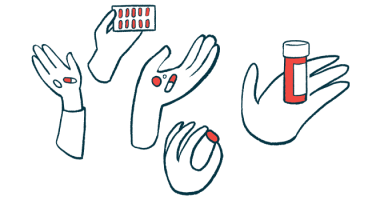Results from Trial of Phage Therapy AP-PA02 Expected in Early 2023
Treatment is targeted for CF patients with chronic P. aeruginosa infections

The Phase 1b/2a clinical trial SWARM–Pa, testing Armata Pharmaceuticals‘ experimental phage therapy AP-PA02 in people with cystic fibrosis (CF) who have chronic Pseudomonas aeruginosa infections, is complete, Armata announced.
Data will now be analyzed, and top-line results are expected early in the new year.
“We are very pleased to have completed Armata’s first multi-center, double-blind, randomized, placebo-controlled clinical trial evaluating phage therapy in patients,” said Mina Pastagia, MD, senior vice president of clinical development at Armata, in a company press release.
“The completion of SWARM-P.a. represents a critical milestone for our lead program and for Armata,” added Brian Varnum, PhD, CEO of Armata.
P. aeruginosa is a key bacterial agent in CF lung infections, and many patients develop chronic infections. AP-PA02 is an inhaled therapy that uses bacteriophage (phage for short), viruses that can infect and kill these bacteria.
AP-PA02 is a mixture of multiple phages, a second version of Armata’s AP-PA01. Compared with AP-PA01, the novel approach is thought to have a wider targeting range, greater potency, and potential to prevent the development of resistance to antibiotics.
The SWARM-Pa trial (NCT04596319) enrolled 29 adults with CF who had chronic infections with P. aeruginosa. The trial evaluated single and multiple doses of AP-PA02, with some patients given a placebo for comparison; the study’s main goal is to assess the safety and tolerability of the experimental phage treatment through 28 days after its last dose.
“This trial will provide critical information regarding inhaled delivery of phage, importantly, assessment of safety and tolerability of phage therapy in the CF population. Additionally, this first-in-human Phase 1b/2a study will provide critical insights for dosing paradigms required to meet microbiological endpoints,” Varnum said.
“Successful use of phage therapy has been reported in compassionate use cases, but its translation into standard clinical practice requires rigorous, systematic clinical trials,” Pastagia added. “We look forward to evaluating the clinical data from CF subjects in our SWARM-P.a. study to take Armata one step closer to that goal.”
The Cystic Fibrosis Foundation awarded up to $5 million Therapeutics Development Award to Armata in 2020 to further the development of AP-PA02. The foundation invested a further $3 million in the company in 2021.
“I would like to once again express Armata’s gratitude to the Cystic Fibrosis Foundation for its ongoing support and guidance,” Varnum said.








